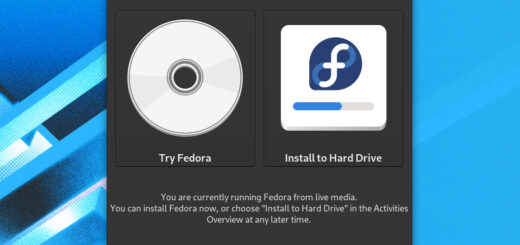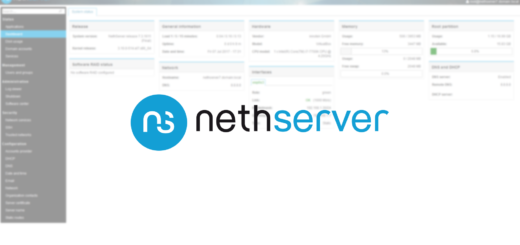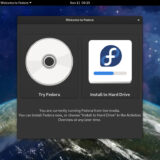Fedora 30 new features: Where’s CoreOS?

Fedora 30 is the newest release of 2019 of the popular power user distribution: Fedora. Fedora is the base for Red Hat Enterprise Linux and it is favored among developers. Let’s discover what will change in this release.
When will it be released?
Fedora 30 is scheduled to be released on 30th April 2019 (preferably, or 05th May 2019 as a second target).
How do I install Fedora 30?
You can find a step-by-step tutorial here.
Where’s Fedora CoreOS?
Last year Red Hat acquired CoreOS and announced Fedora CoreOS and the sunset of the Atomic project, then IBM announced it will acquire Red Hat. Quite a few events, but where is Fedora CoreOS? With CoreOS Container Linux being discontinued in 2020 its successor is yet to be shown. Although there is a website for Fedora CoreOS and an active mailing list, there still isn’t a finished product. In earlier announcements Fedora CoreOS was pointing at Fedora 30 as a possible release, but that still hasn’t happened. Nevertheless you can find Fedora CoreOS builds here
System-wide changes
- Bash 5.0: the popular Linux shell gets a major update addressing significant bugs and stability improvements.
- BootLoaderSpec-style configuration files: will be used by default. Boot Loader Specification is a common format to define bootloader entries without manipulating the bootloader files. The specification aims to produce bootloader entries compatible across multiple bootloaders.
- Better DNF counting: this change will allow Fedora to get better metrics on Fedora installations without compromising the privacy of its users.
- dbus-broker as default DBus: the dbus-broker is a highly efficient implementation of the D-Bus specification. More info here.
- Flicker-free boot: with this change Fedora Workstation will get a flicker free boot. If you’ve ever used Fedora Workstation you may have noticed the screens turns off for a split second.
- FreeIPA Python 2 Removal: since FreeIPA 4.8 will require Python 3.6+ there is no need for Python 2 packages.
- Remove unsafe functions from libcrypt: unsafe and deprecated functions will be removed from libcrypt.
- Switch to GCC9.
- GNUPG2 as default GPG implementation.
- Python 2 mass-removal: packages that provide python2 modules will be removed unless needed by other packages. Fedora 31 currently aims to remove all Python 2 packages.
- Remove excessive linking: “Pass –as-needed flag the linker through default system-wide LDFLAGS.” (More here.)
- Remove obsolete scriptltes: such as ldconfig.
- Reset locale if not available in SSH: “When logging in over ssh or another mechanism, locale settings are forwarded. If the destination does not support that locale, C.UTF-8 will be used instead.”
- cryptsetup will default to LUKS2 metadata format.
- Zchunk metadata: all metadata will be compressed using Zchunk in addition to xz or gzip.
- Deprecate /etc/sysconfig/nfs: the new configuration file will be /etc/nfs.conf .
- uEFI will be the default ARMv7 boot mechanism.
Self-contained
- Deepin: Fedora will now feature a Deepin Spin.
- Pantheon: Fedora will now feature a Pantheon Spin.
- Fish will be updated to version 3.0.
- Nautilus extension using Python 2 will be migrated to Python 3. Extensions compatible with Python 2 only will no longer be supported.
- KRB5 crypto modernization: “krb5 will be removing support for DES, 3DES, crc-32, and MD4 entirely; they will not be allowed in session keys or long-term keys. Additionally, RC4 and MD5 will be marked deprecated and dangerous.”
Developers
- MongoDB removal: the new, much-spoken of, SSPL: a license adopted by the MongoDB team for MongoDB, has been deemed non-Free Software License, hence MongoDB will be removed from Fedora.
- GlibC updated to version 2.29
- Boost upgraded to version 1.69.
- Ruby upgraded to version 2.6.
- Golang updated to version 1.12.
- Erlang updated to version 21.
- Haskell GHC updated to 8.4 and Stackage updated to LTS 12.
- java-openjdk upgraded to JDK12.
- PHP upgraded to 7.3.x.
- Vagrant upgraded to 2.2.
GNOME 3.32
The video for 3.32 is not yet available, following you can find the 3.30 one. I will update the video as soon as it gets released:
- 2020 A year in review for Marksei.com - 30 December 2020
- Red Hat pulls the kill switch on CentOS - 16 December 2020
- OpenZFS 2.0 released: unified ZFS for Linux and BSD - 9 December 2020









Recent Comments